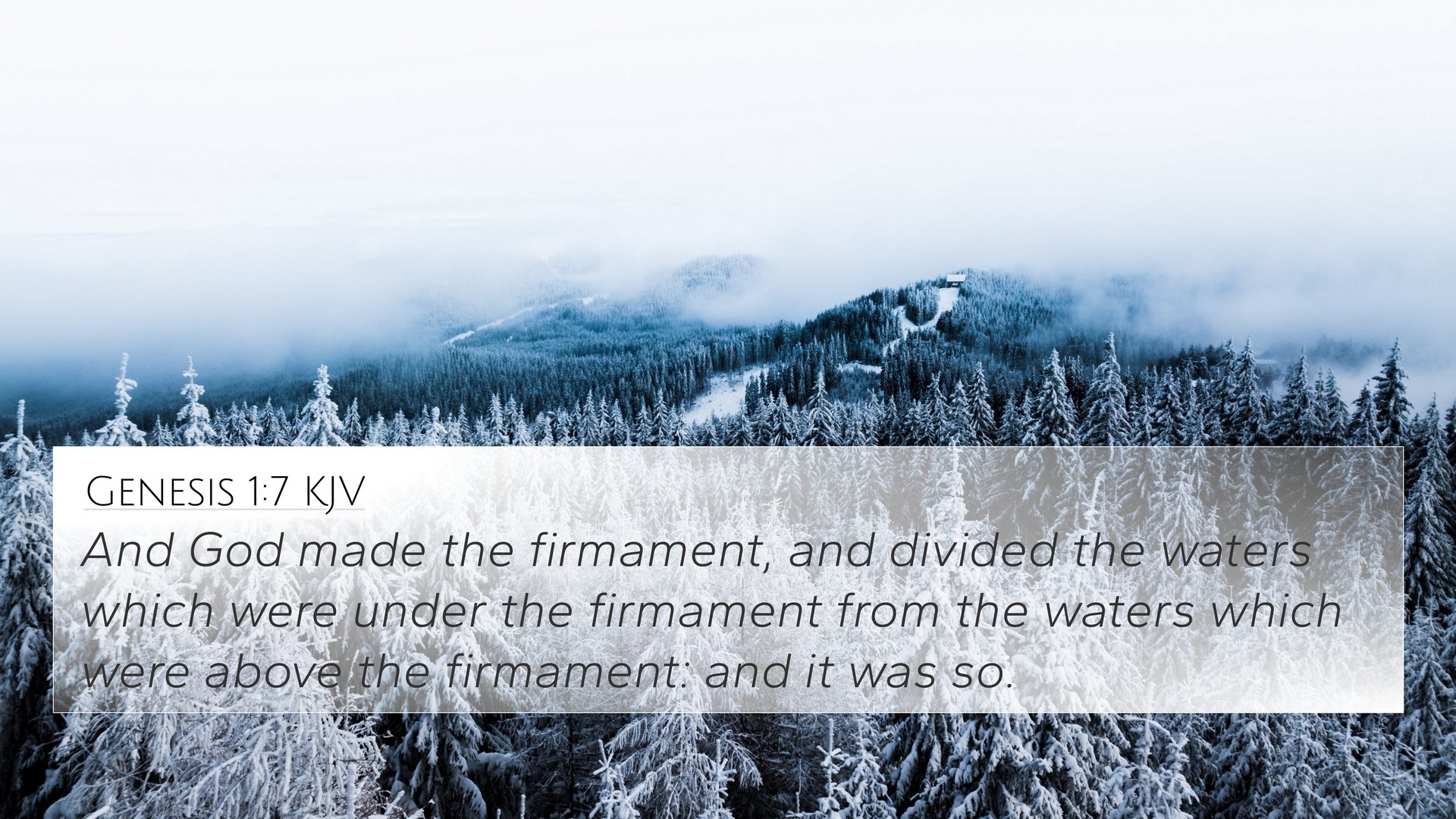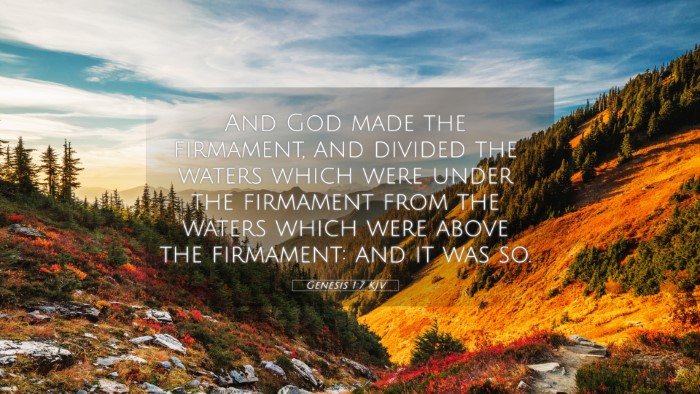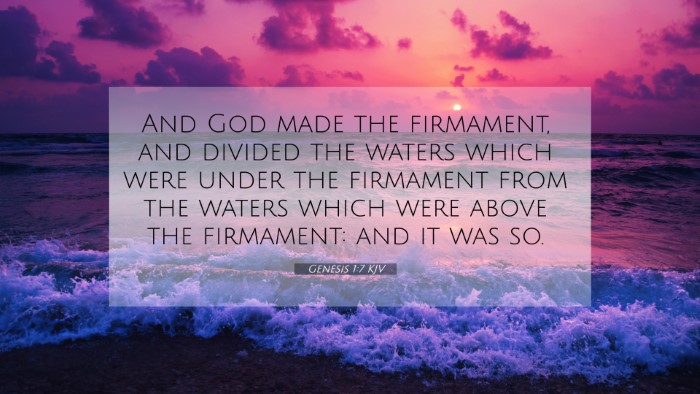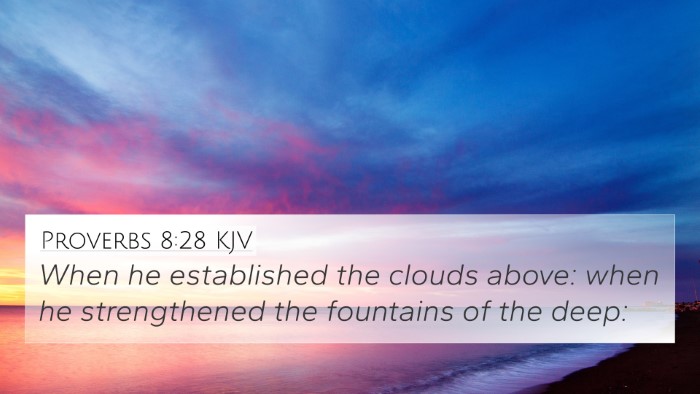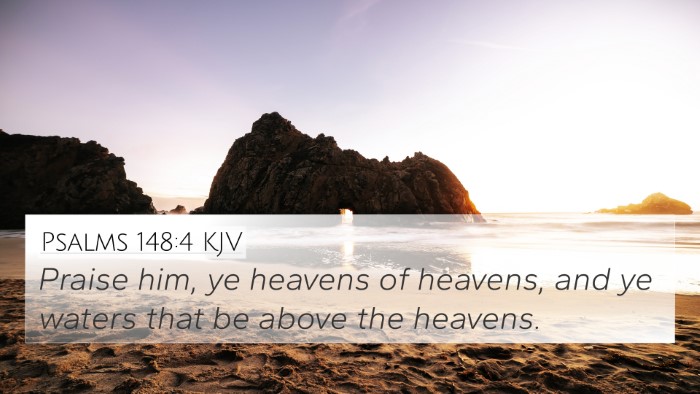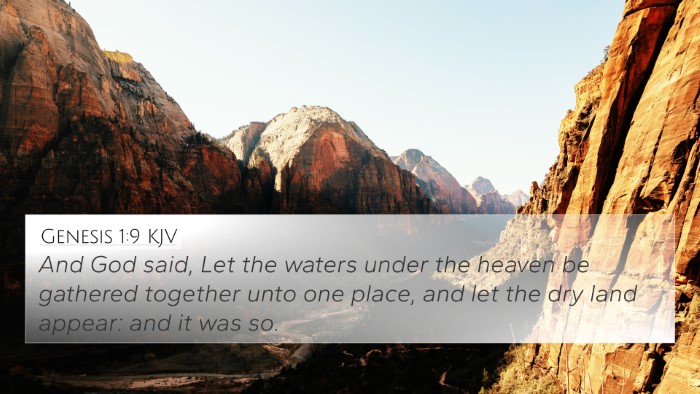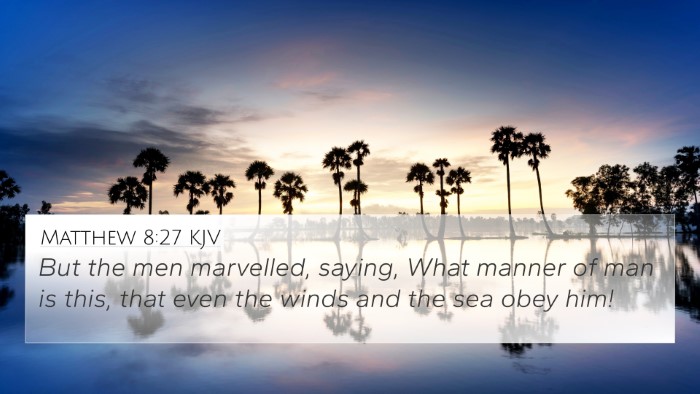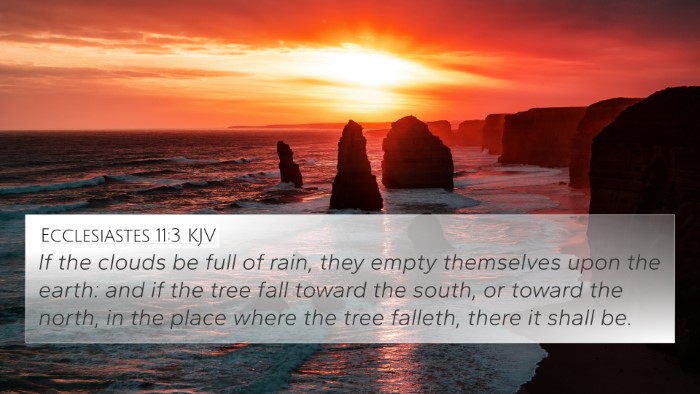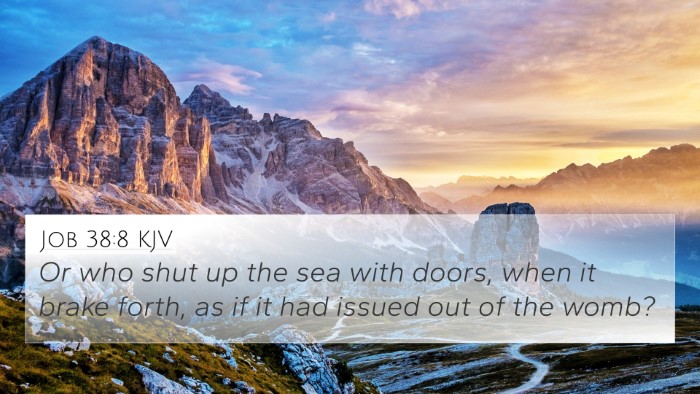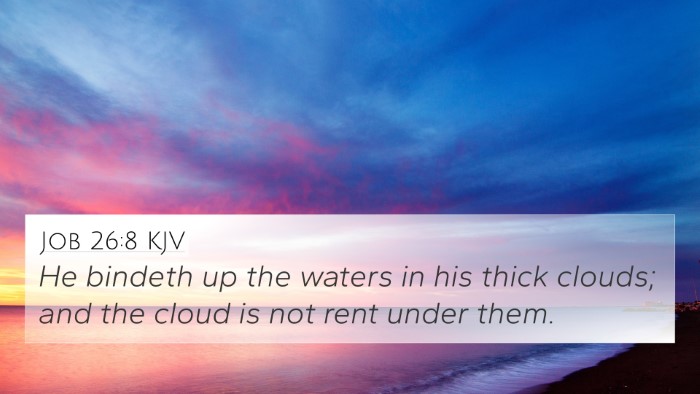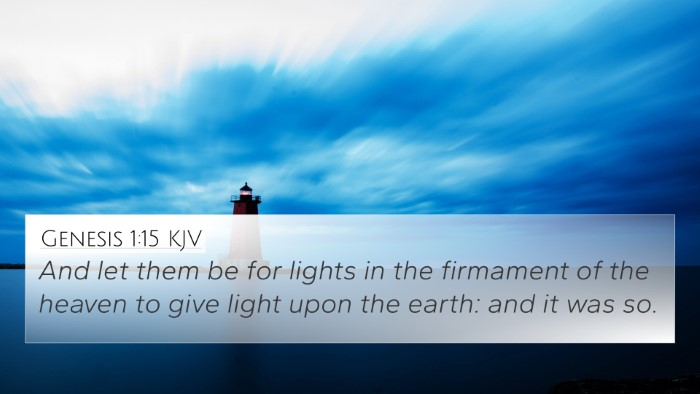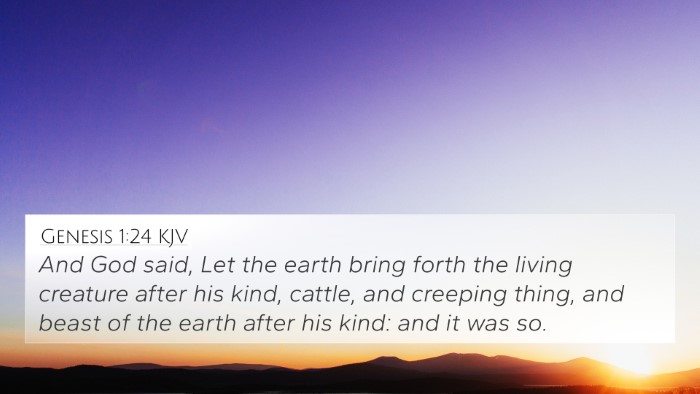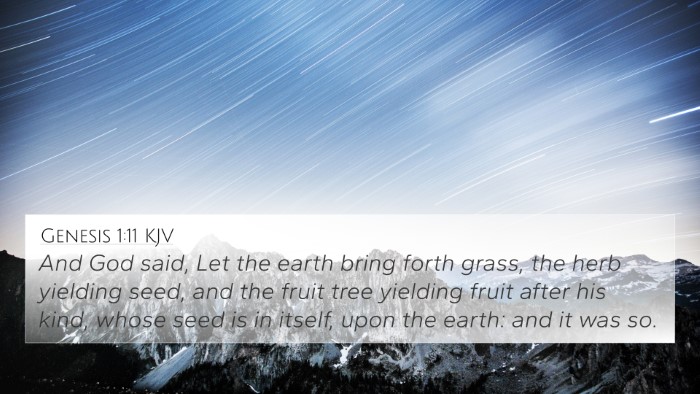Understanding Genesis 1:7
Genesis 1:7 states: "And God made the firmament, and divided the waters which were under the firmament from the waters which were above the firmament: and it was so." This verse is a part of the Creation narrative that highlights the methodology of God's creation process.
Summary of Insights
This verse emphasizes several key concepts regarding the nature of the firmament and the division of waters:
- The Nature of the Firmament: The firmament, described as a vault or expanse, represents God's separation of the chaotic waters, indicating His authority over creation.
- Divine Order: The act of dividing the waters signifies God's imposition of order in the universe, a theme that reverberates throughout the scriptures as God brings light and organization out of chaos.
- Symbolism of Waters: Waters can be understood symbolically: waters above represent heavenly or celestial bodies, while waters below relate to earthly existence, pointing toward the distinct realms created by God.
Commentary Perspectives
Insights from renowned public domain commentaries provide deeper analysis on Genesis 1:7:
Matthew Henry
Matthew Henry notes that the firmament serves as a boundary established by God, segregating the upper and lower waters. This illustrates the sovereignty of God in creation, establishing the earth's order and beauty.
Albert Barnes
Albert Barnes elaborates on the concept of the firmament representing not just the sky, but also the heavenly bodies that God created to govern the day and night. He emphasizes the significance of God's command in bringing forth this separation.
Adam Clarke
Adam Clarke provides a detailed interpretation of the word 'firmament', suggesting it reflects God's will to create a space for life and to serve as a reflection of His glory. Clarke emphasizes the life-giving properties of the firmament in terms of weather and seasons.
Connected Themes in the Bible
Genesis 1:7 is intricately connected with several other Bible verses, highlighting thematic Bible verse connections and cross-references:
- Genesis 1:6: "And God said, Let there be a firmament in the midst of the waters..." - Establishes the initial command that precedes the creation of the firmament.
- Psalm 148:4: "Praise ye him, ye heavens of heavens, and ye waters that be above the heavens." - Affirms the existence of waters above the firmament, praising God’s creation.
- Job 38:37: "Who can number the clouds in wisdom? or who can stay the bottles of heaven..." - Reflects on God's control over the heavens and their waters.
- Isaiah 40:22: "It is he that sitteth upon the circle of the earth..." - Discusses God's sovereignty over creation, aligning with the theme of divine order from Genesis 1:7.
- Revelation 21:1: "And I saw a new heaven and a new earth..." - Points to the future restoration of creation, linking back to God’s original intent in creation.
Cross-Referencing Biblical Texts
The Genesis narrative sets a foundation that informs many later Biblical themes. Here are a few points on how cross-referencing can enhance our understanding:
- Using a Bible concordance can assist in finding relevant verses related to creation, the firmament, and the order established by God.
- Bible reference resources provide additional context and scholarly perspectives that can help deepen our understanding of these themes.
- Tools for Bible cross-referencing such as the Bible cross-reference guide, can illuminate connections between Genesis and Revelation.
Conclusion
Genesis 1:7 is a profound reminder of God's power and authority in creation, revealing His intent to create a structured and ordered universe. Through comparative Bible verse analysis, the connections between different verses enhance our appreciation of God’s word. The firmament is not just a physical barrier but a testament to the divine order that reflects God's nature and sovereignty.
